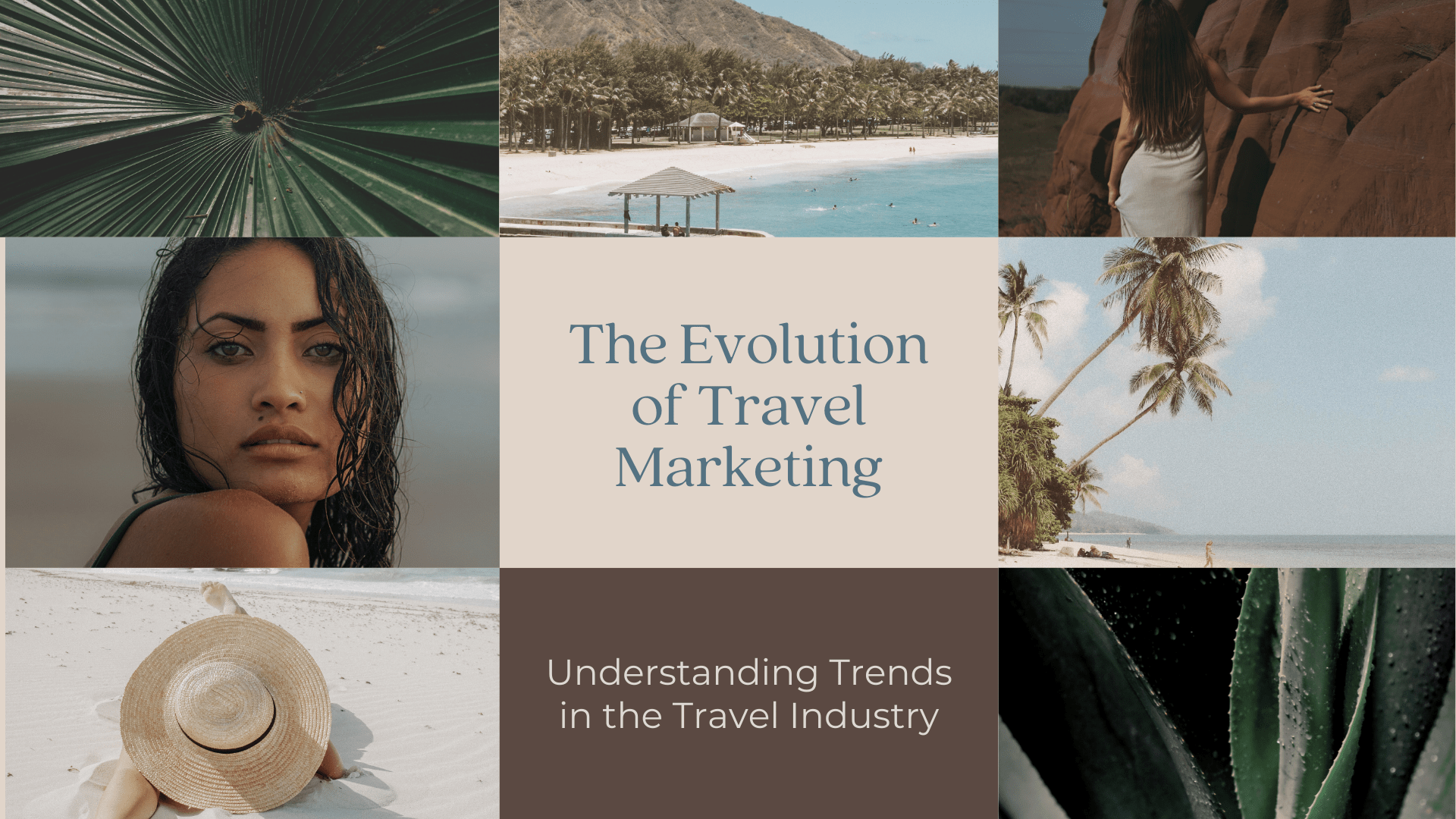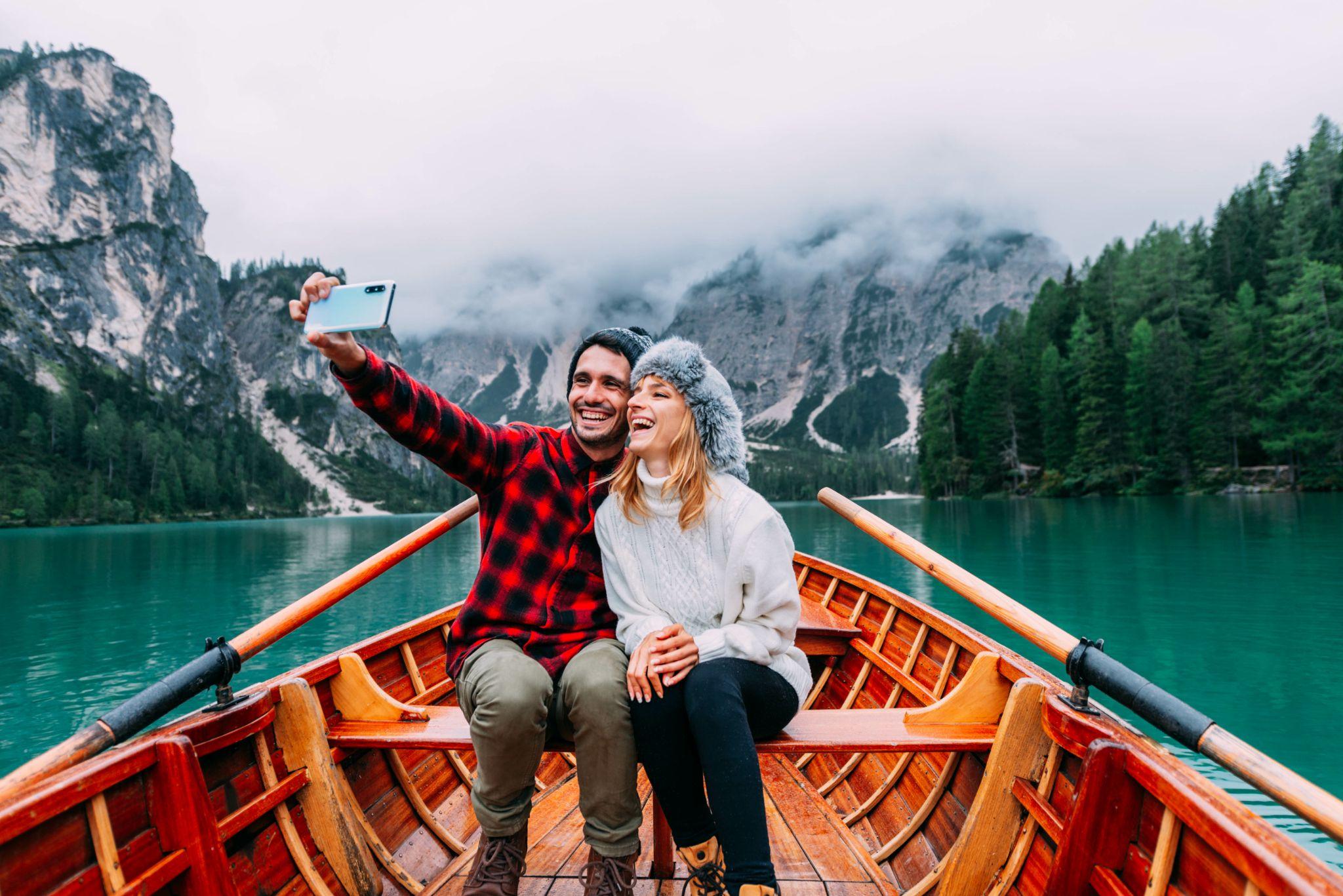
The tourism industry has bounced back since its post-pandemic slump. Travel is back in a big way, with people eager to explore new destinations and reconnect with the world.
But the way people travel has changed. The surge in remote work and the AI revolution have fundamentally altered consumer expectations. Staying on top of trends in the travel industry is critical for travel brands who want to beat the competition.
To capture the attention of modern travelers, you need to understand the preferences and expectations that shape their travel decisions. Let’s explore how marketing for travel and tourism has evolved—and the strategies you need to succeed.
Today’s travelers have shifted their focus from conventional getaways to more purposeful and meaningful experiences. No longer content with cookie-cutter itineraries, travelers today crave deeper connections with the places they visit.
We’ve seen an increase in demand for educational travel opportunities and flexible plans that allow travelers to explore off-the-beaten-path destinations. The rise of remote work also means that people have the freedom to travel more frequently.
Brands today need travel marketing plans that speak to this new way of exploring the world. To effectively reach contemporary travelers, it’s vital to align your offerings with the evolving preferences of modern tourists.
Here’s a look at some of the most important trends in the travel industry and how you can leverage them to attract travelers.
The rise of remote work has given birth to a new type of travel. Digital nomads blend work with travel, using flexible schedules and remote work capabilities to their advantage to explore new destinations while staying connected to their jobs.
According to a report by Deloitte, this trend has led to an increase in travelers who work abroad or take multiple trips throughout the year, fitting in short getaways alongside their work schedules.
As a travel brand, you can cater to this group by highlighting the amenities they value, like reliable Wi-Fi, comfortable workspaces, and extended stay options. Emphasize how your destination or accommodations can help them seamlessly balance work and travel adventures.
Marketing in the tourism industry today means focusing on sustainable travel. Ecotourism is big business today. It’s about protecting the natural environment and supporting local communities while minimizing the impact on local cultures. Ecotourism is gaining popularity, especially among Millennials and older Gen Z travelers.
To attract these eco-conscious travelers, emphasize your sustainable practices, whether it’s reducing waste, offering eco-friendly tours, or partnering with local businesses. Highlight these initiatives in your marketing efforts to show you’re committed to responsible tourism.
Modern travelers don’t want a one-size-fits-all experience. They want personalized experiences tailored to their specific interests and travel goals. Whether it’s a customized itinerary that includes their favorite activities or a special surprise waiting in their hotel room, offering personalized touches can set your brand apart.
Use data to understand your customers’ preferences and create targeted offers that match their interests. Emphasize personalization in your travel marketing materials by clearly explaining how you can customize trips to meet the unique needs of each traveler.

For many travelers, discovering hidden gems is more appealing than visiting crowded tourist hotspots. Your marketing for travel and tourism efforts should include trips to lesser-known destinations and activities that give visitors a deeper connection to the local culture and landscape.
Create content that emphasizes the unique experiences your brand offers, such hikes on lesser-known trails, trips to secluded beaches, or locally guided tours. By promoting these alternatives, you can appeal to those travelers who want authentic experiences away from the usual crowds.
Marketing in the tourism industry today means adapting to the rise of tech-integrated travel. Technology has become an essential part of the travel experience, from planning to booking to the journey itself.
To stay ahead of the curve, offer features like AI-powered chatbots for customer service, contactless check-in/check-out, and virtual concierges that make the traveler’s experience seamless. Investing in technology not only enhances the guest experience but also shows that your brand is at the forefront of travel in the 21st century.
AI is revolutionizing how people plan their trips. With AI-powered tools, travelers can generate personalized itineraries, find the best deals, and discover new destinations based on their preferences.
As a travel brand, you can leverage this trend by offering AI-based services that make trip planning easier for your customers. Consider partnering with AI platforms or developing your own tools to create customized suggestions, ensuring that your brand remains a go-to resource for planning memorable trips.
The travel industry is set to make a significant impact on the global economy by the end of 2024, contributing a record $11 trillion to global GDP—a 12.1% increase from the previous year, according to the World Travel and Tourism Council (WTTC).
An incredible $1 out of every $10 spent globally will be on travel in 2024, signaling a robust demand for travel experiences.
For travel and tourism brands, this is a golden opportunity. By staying attuned to trends in the travel industry and adapting to travelers’ evolving needs, you can tap into this increased spending and grow your customer base.
As travel marketing trends continue to evolve it’s important to take note of the new types of tourism that are emerging, which offer fresh opportunities for brands to engage with travelers.
A newer trend in the travel scene, gig-tripping, involves planning your travels—sometimes internationally—around the tour stops of your favorite artists. Unlike the traditional subcultures that centered around following bands for entire tours, gig-trippers tend to focus on one or two concerts in a specific location, making it more of a vacation or “workcation.”

As remote work continues to reshape travel, many digital nomads are opting for longer stays in their chosen destinations, combining leisure with productivity. To reach digital nomads, highlight features like coworking spaces, comfortable living arrangements, and a community vibe that supports digital work.
Travelers with small budgets, tricky work schedules, or little to no paid time off are increasingly opting for quick, local adventures known as “daycays.” These one- or two-day trips provide an affordable break from the routine without the need for extensive planning.
Travelers today are increasingly looking for trips that enrich their knowledge and skills. Whether it’s learning to cook regional dishes, participating in art workshops, or going on volunteer trips, educational experiences are in high demand among tourists who want to come home with more than just photos.
It’s clear that travel has changed in the post-pandemic era with the rise of remote work and AI technology. How can travel brands and tour operators set themselves apart in this new age of travel? Here are some effective strategies:
Micro-influencers have highly engaged audiences who trust their recommendations. Launching an influencer marketing campaign can give your destination or service a more authentic appeal. Influencer posts can introduce your offerings to a niche audience in a way that feels genuine and trustworthy.
Nothing does a better job of driving desire than well-made video content. It’s why video is such a key component of travel marketing today. Showcase your destination through stunning visuals that capture the unique experiences you offer. Highlight local sights, activities, and behind-the-scenes moments to draw in viewers.
As tech-savvy travelers become the norm, providing features like contactless check-in, virtual concierge services, and easy online booking can make a significant difference. Tech enhances the customer experience and positions your brand as innovative and responsive to the needs of modern travelers.
From customized meal options to guided tours, travelers appreciate options that cater to their individual needs. Promote these customizable offerings in your travel marketing materials to appeal to those looking for a tailored experience.
Emphasizing the unique, lesser-known aspects of your destination can attract travelers looking for a more intimate and enriching experience. Use your website, blog, and social media channels to tell stories about these hidden gems and the unforgettable memories they can create.

By staying on top of travel marketing trends and embracing the shifts in traveler preferences, you can ensure that your brand remains relevant in a competitive industry. Understand what today’s travelers want, adapt your offerings, and communicate your message clearly.
Need help crafting messages that resonate? Socialfly can help. Our team of digital natives manages all aspects of digital marketing, from ensuring your website is optimized for search to connecting you with influencers who can help you achieve your business goals.
Get in touch today to learn more about how we can help your travel or hospitality brand.